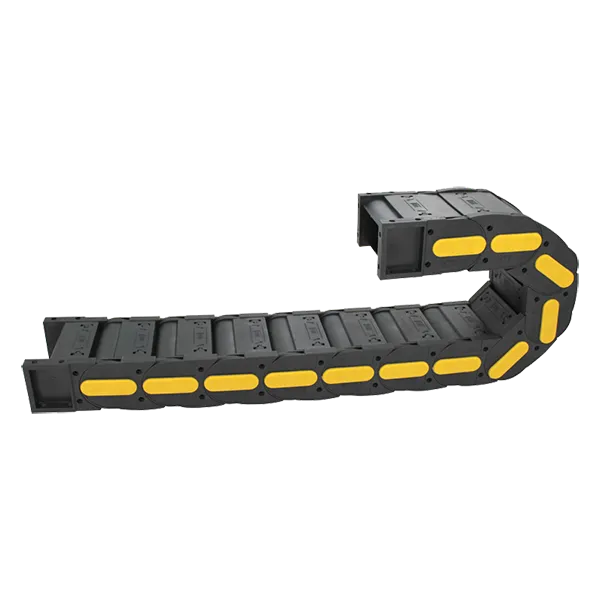flexible cable carrier chain
Understanding Flexible Cable Carrier Chains An Essential Component in Modern Engineering
In the realm of modern engineering and manufacturing, the efficient movement and management of cables are critical for maintaining productivity and ensuring safety. Among the various solutions available, flexible cable carrier chains have emerged as a vital component, offering businesses and engineers a reliable means of organizing and protecting cabling in dynamic environments. This article delves into the essentials of flexible cable carrier chains, exploring their design, functionality, applications, and benefits.
What Are Flexible Cable Carrier Chains?
Flexible cable carrier chains, often referred to simply as cable carriers or drag chains, are mechanical structures designed to guide and protect cables, hoses, and other flexible elements during motion. Composed of interconnected links, these chains provide a guided path for cables, preventing tangling and wear from excessive movement. Unlike traditional fixed conduits, cable carrier chains accommodate dynamic motion, making them suitable for applications involving moving machinery.
Design Considerations
The design of flexible cable carrier chains is pivotal to their performance. These chains are engineered to be lightweight yet durable, often manufactured from high-quality materials like plastic or steel. The choice of material significantly impacts the chain's strength, flexibility, and resistance to environmental factors such as heat, chemicals, and abrasion.
Another critical aspect of design is the dimension and configuration of the chain links. Manufacturers offer a variety of chain profiles to accommodate different cable sizes and arrangements. Additionally, customizable link types can enhance the chain's ability to handle specific applications, such as those requiring increased flexibility or load capacity.
Functionality and Operation
Flexible cable carrier chains operate by providing a smooth channel for cables and hoses as they move with machinery, such as robotic arms, CNC machines, and conveyor systems. As equipment operates, the chain flexes and extends, allowing the cables to move freely without hindrance.
One of the primary functions of a cable carrier chain is to prevent cable wear and tear caused by friction or excessive bending. By holding cables in a fixed orientation and protecting them from external influences, these chains minimize the risk of damage, ensuring longevity and reliability of the electrical or hydraulic system.
Applications of Flexible Cable Carrier Chains
The utility of flexible cable carrier chains spans a wide range of industries, including
flexible cable carrier chain

2. CNC Machining CNC machines rely on precise movement and control. Cable carrier chains support the necessary cables, preventing interference with machine operations while accommodating rapid movement.
3. Material Handling In warehouses and distribution centers, flexible cable carriers can be utilized in automated sorting systems, ensuring that power and communication lines are safely guided.
4. Renewable Energy In the installation of wind turbines and solar panels, cable carrier chains manage and protect the cables that provide power to the grid.
5. Transportation In rail and automotive industries, these chains help manage wiring systems in trains and advanced vehicles, preventing damage as components move.
Benefits of Using Flexible Cable Carrier Chains
The advantages of implementing flexible cable carrier chains are numerous
- Enhanced Cable Longevity By providing protection against wear and movement, cable carriers extend the life of cables, reducing downtime and maintenance costs. - Increased Safety With organized cables free from tangling or snagging, workplaces are safer, minimizing tripping hazards.
- Efficiency and Productivity With optimized cable management systems, machinery operates more efficiently, enhancing productivity across operations.
- Customizability Flexible cable carriers can be tailored to specific needs, allowing for varied applications and configurations.
Conclusion
Flexible cable carrier chains play an integral role in modern engineering and manufacturing settings, providing a reliable mechanism for cable management in dynamic environments. With their robust design, versatile applications, and numerous benefits, these chains are essential for enhancing productivity and ensuring the longevity of vital systems. As technology advances, the importance of efficient cable management solutions, such as flexible cable carrier chains, will only continue to grow, underscoring their relevance in various industries.








